Hawaiʻi Study Tour Report
TUFS Featured
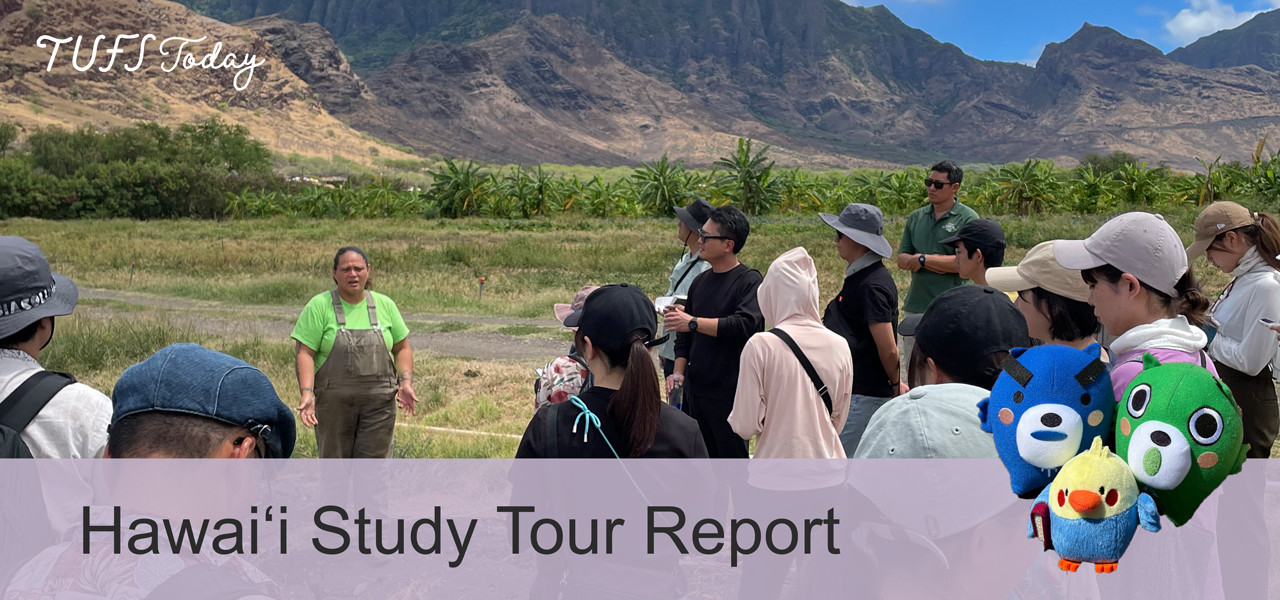
From September 1 to 7, 2025, the Center for Transdisciplinary Research, Networking and Dialogue (TReND Center) and the Training Program for Trans-Pacific Bridge Persons (TP-Bridge) of Tokyo University of Foreign Studies conducted a Hawaiʻi Study Tour in collaboration with the West Tokyo Joint Center for Sustainability Research and Implementation of Tokyo University of Agriculture and Technology. Tokyo University of Foreign Studies is engaged in interdisciplinary research that bridges the humanities and the sciences as a collaborator of Tokyo University of Agriculture and Technology, which has been adopted for the Japan Society for the Promotion of Science Program for Forming Japan’s Peak Research Universities (J-PEAKS).
Eight students from Tokyo University of Foreign Studies (hereafter TUFS) and nine students from Tokyo University of Agriculture and Technology (hereafter TUAT) joined the study tour under the theme of “Food and Agriculture in Hawaiʻi.” Prior to the tour, the participants attended three preparatory lectures held at TUAT, where they studied together and shared their individual research interests. During the tour, the participants visited farms and a food bank, engaging with the culture and history of the people in Hawaiʻi through the lens of food and agriculture—an aspect rarely encountered on ordinary sightseeing trips. In addition, a rice tasting event was held at the University of Hawaiʻi at Mānoa, featuring Japanese rice cultivated by TUAT on the island of Kauaʻi.
Experiential Learning and Local Interaction
Day 1 | Arrival and Preparation for the Rice Tasting Event
Around noon, the participants arrived at Daniel K. Inouye International Airport and held a meeting at the hotel. Afterwards, some of the students voluntarily visited a Japanese supermarket to look into the availability, varieties, and prices of rice. They purchased two types of rice to be served alongside TUAT rice at the tasting event scheduled for Day 3.
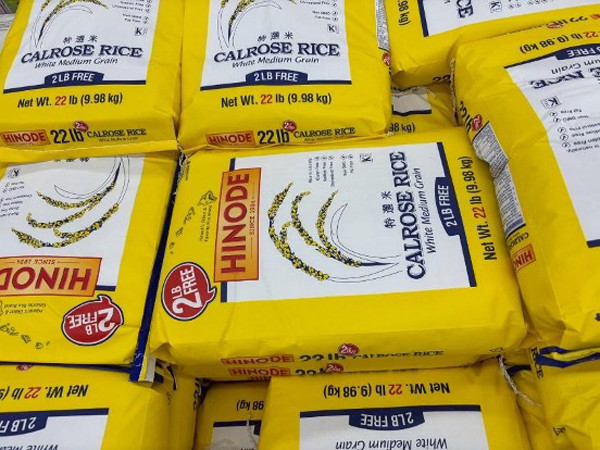
Day 2 | Visit to a Garden Center and Volunteering at a Food Bank
In the morning, the participants visited the Urban Garden Center operated by the University of Hawaiʻi at Mānoa. Before entering the fields,they joined in a Hawaiian prayer (oli) led by the staff, reading aloud from a printed text in Hawaiian. Then they experienced harvesting taro (kalo) grown on dry land rather than in loʻi (irrigated paddies). Afterwards, they learned how to make poi from both taro and bread fruit (ʻulu). Poi, a traditional staple food of Native Hawaiians, is primarily made from steamed taro that is pounded into a smooth paste. The taro harvested that day was donated to a food bank.
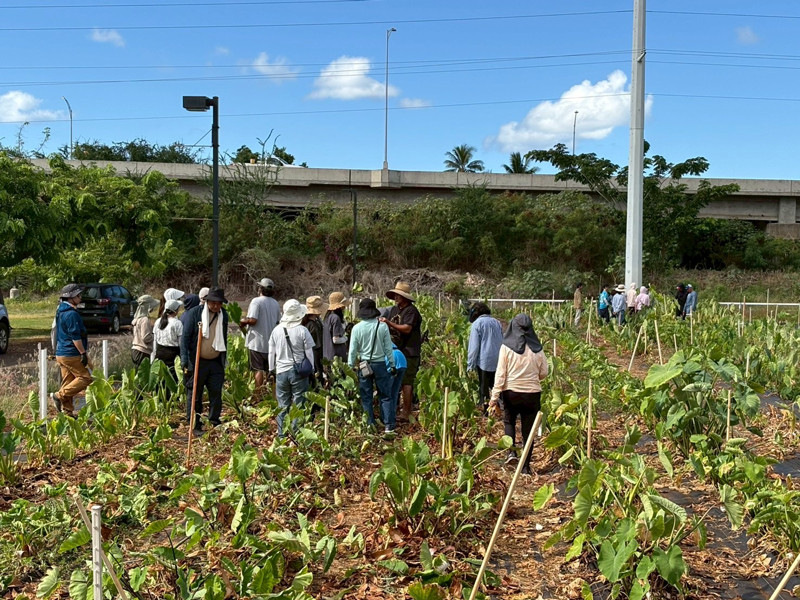
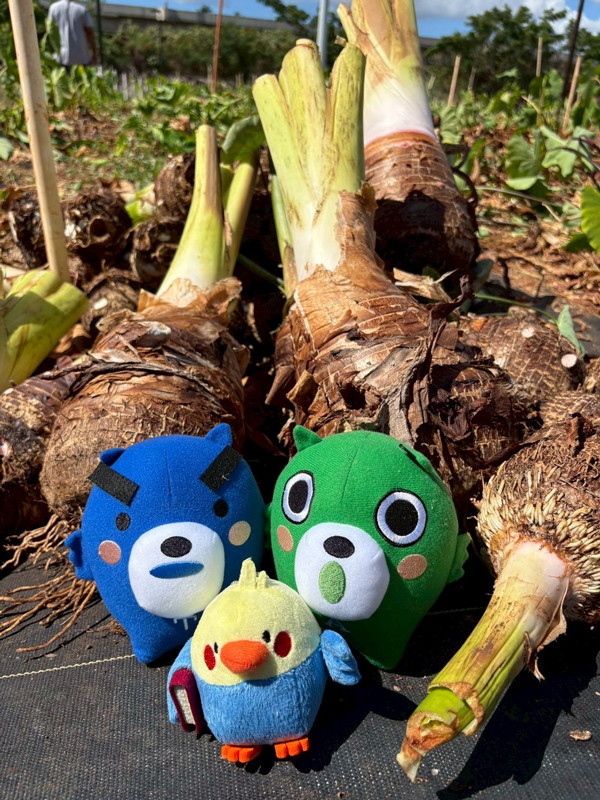
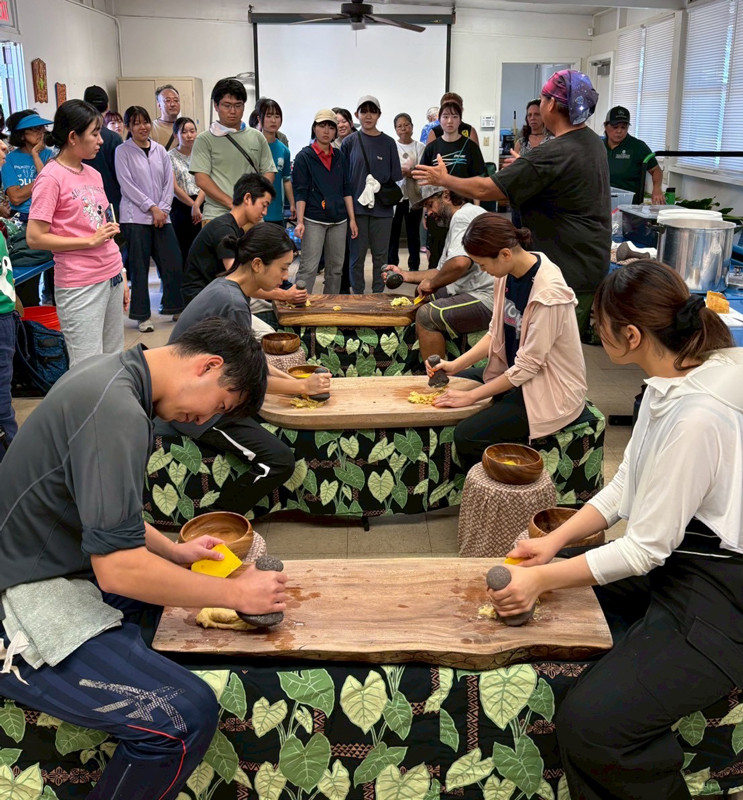
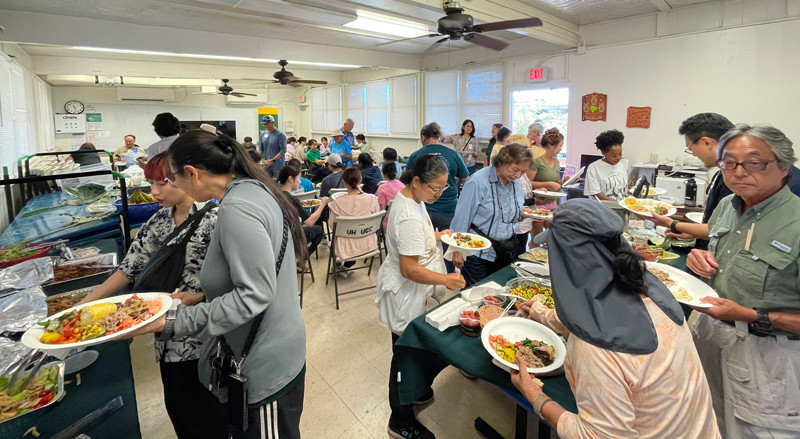
In the afternoon, the participants visited a food bank called The Pantry and took part in volunteer activities. Inside a warehouse-like facility, they found a wide variety of food items such as canned goods and preserved foods. Working in pairs, they packed boxes according to order sheets submitted by customers—people in need of food assistance. The day’s packing was completed once all the orders had been filled.
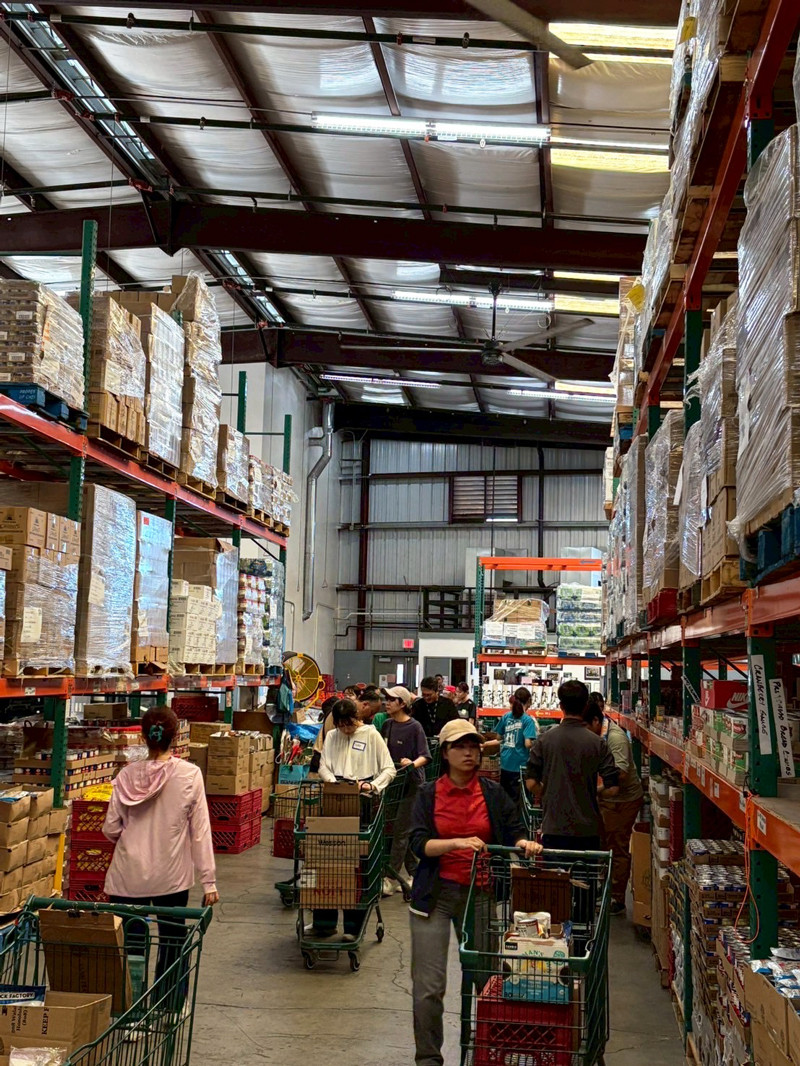
Day 3 | Rice Tasting Event
At the University of Hawaiʻi at Mānoa, a Rice Tasting Event was held featuring three types of rice: Japanese rice cultivated by TUAT on Kauaʻi, Calrose, and Tamaki Rice. Participants were invited to evaluate the taste and aroma of each. All reservation slots were filled, and a total of 148 faculty, staff, and students of the University of Hawaiʻi attended. TUAT students were in charge of kitchen work, while TUFS students took charge of reception and hospitality.
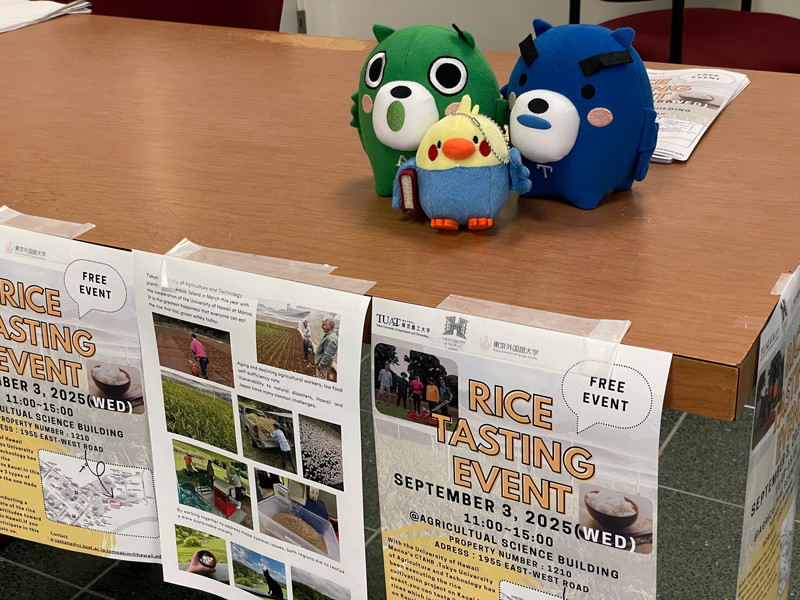
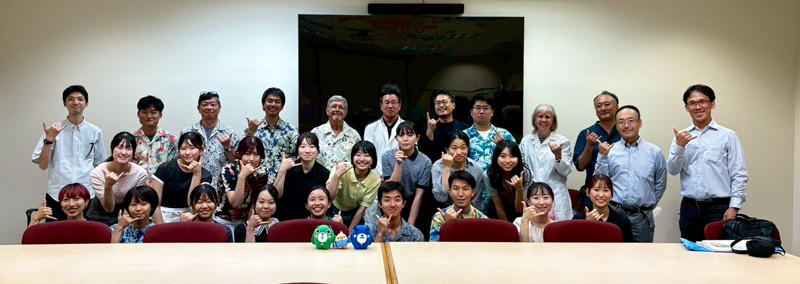
Day 4 | Visits to Three Farms
On this day, the participants visited three farms in the Waiʻanae area.
The first stop was Kaneshiro Farm, a commercial farm primarily cultivating leafy vegetables. There, they learned about crop management practices such as bird control and the use of pesticides, as well as the issue of a shortage of successors in farming.
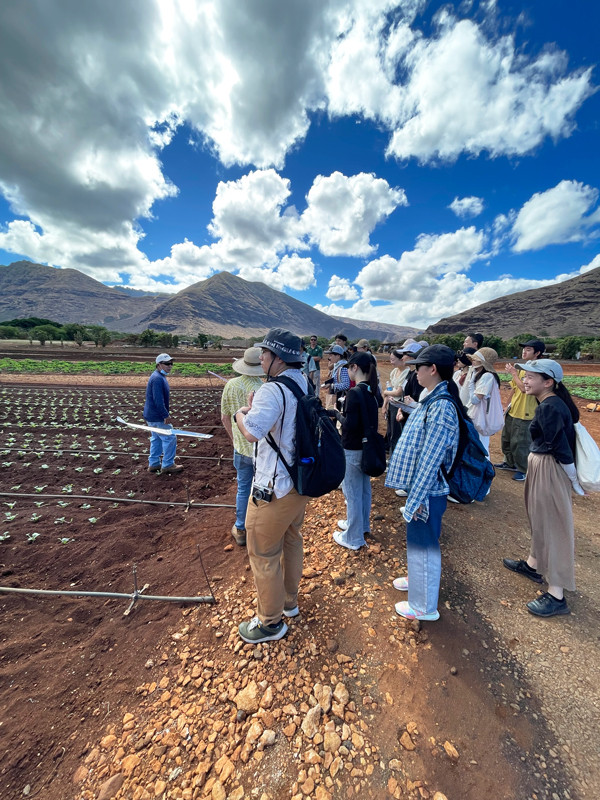
The next visit was to MAʻO Farm, a revenue-generating nonprofit organization run by Native Hawaiians that actively welcomes interns. There, the participants learned about the importance of land and water for Hawaiians and the history of how these resources have been taken away. They also had the opportunity to touch and experience the distinctive soil that swells when it absorbs water. In addition, they observed agricultural machinery introduced a few years ago for washing vegetables and other tasks.
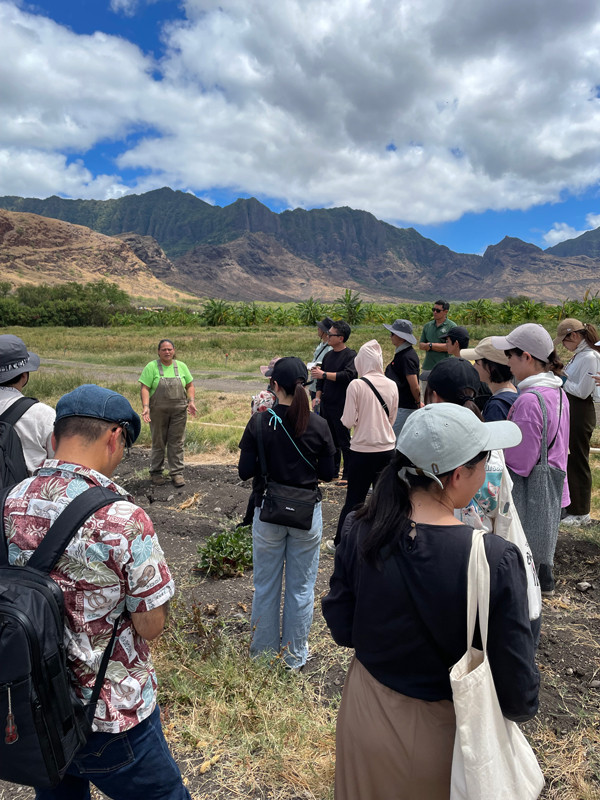
The final visit was to Kaʻala Farm, an educational center run by Native Hawaiians. Before entering the fields, the participants joined in a Hawaiian prayer (oli). They learned about Hawaiian history and mythology, and also listened to a talk on poverty in Hawaiʻi. At this site, they observed taro (kalo) fields cultivated in traditional loʻi (irrigated paddies).
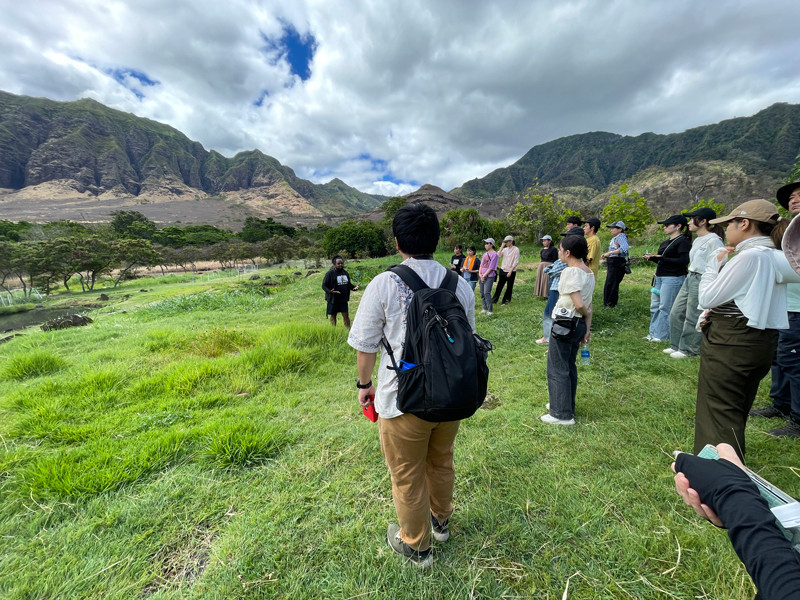
Day 5|Review Discussion
Participants gathered in the hotel conference room to reflect on what they learned during the study tour and hold a discussion.
Each participant shared their initial questions set before the study tour, their current thoughts and feelings regarding those questions, and new insights or questions sparked by the tour. Many participants expressed a desire to consider the challenges facing Hawaiian agriculture, while others shared how engaging with Native Hawaiian history and culture inspired them to value and preserve these traditions.
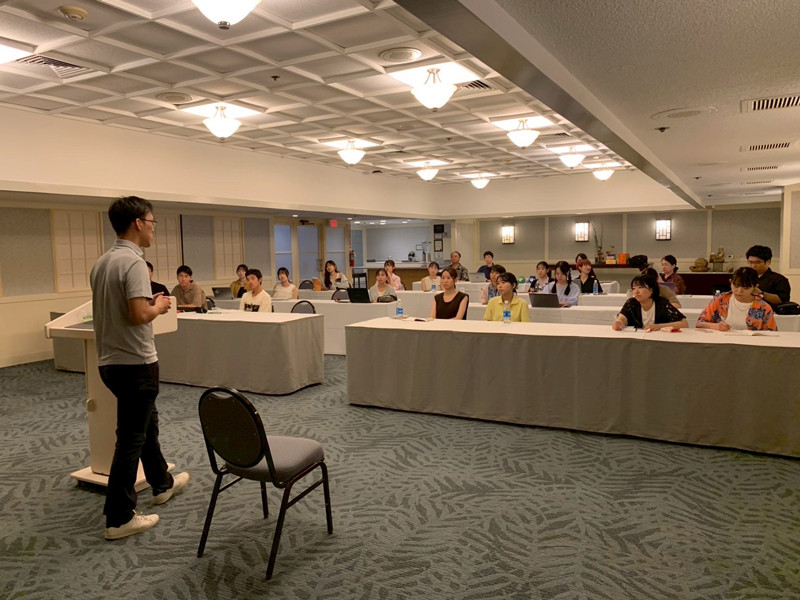
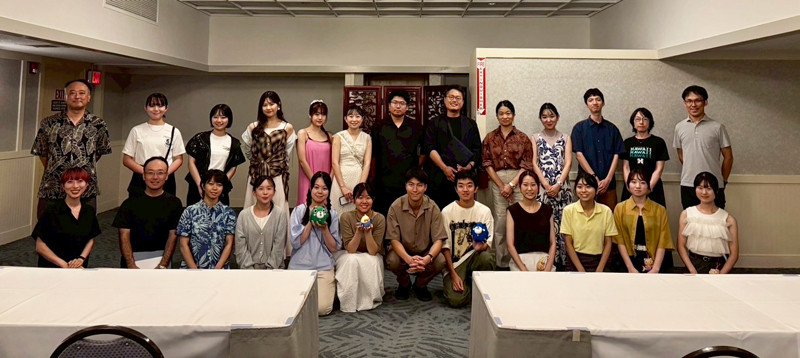
Day 6–7 | Return to Japan
The participants returned home safely in two groups, taking morning and midday flights (departing Hawaiʻi on Day 6 and arriving in Japan on Day 7).
Research Presentation
September 30 | Hawaiʻi Study Tour Research Presentation Event
At TUFS, a research presentation event was held featuring students who had participated in the study tour. A total of 17 students from TUFS and TUAT gave presentations in sessions on (1) land use, (2) Hawaiian society and culture, (3) food culture, (4) rice cultivation, (5) agriculture, and (6) individual topics. TUFS President Nobuo Haruna and Vice President Toshihide Nakayama also attended, and the event featured lively discussions and was a great success.
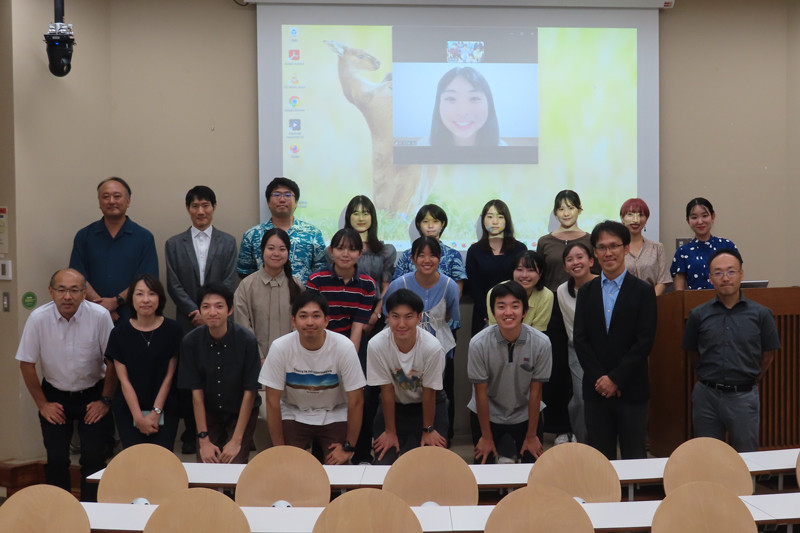
This study tour served as a project to explore food security, providing an opportunity for faculty and students of Tokyo University of Agriculture and Technology, specializing in agriculture and engineering, and those of Tokyo University of Foreign Studies, specializing in language, culture, and society, to engage in collaborative research across disciplines.
We would like to express our sincere gratitude to Professor Akinori Yamanaka of Tokyo University of Agriculture and Technology and Ms. Shihomi Tagami of the West Tokyo Joint Center for Sustainability Research and Implementation, who organized the study tour, prepared the preliminary lectures, and coordinated the visits, as well as to all those at Tokyo University of Agriculture and Technology for their dedication and support in many aspects.
Contact to TP-Bridge
TP-Bridge Office, Inter-University Exchange Project (U.S., etc.)
tenkai-bridge-coordinator[at]tufs.ac.jp (Please replace [at] with @ when sending)

